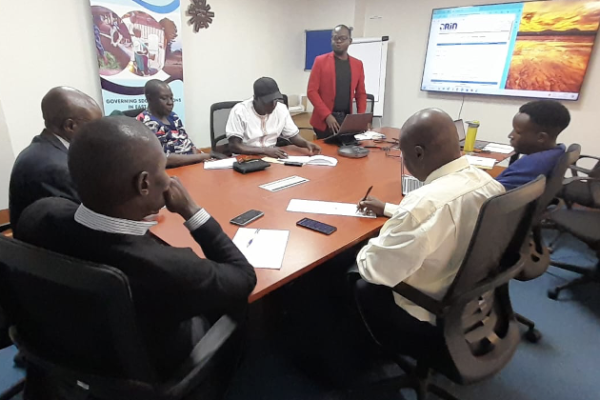Insights from the COP26 Africa-Led Consultative Workshops
Adaptation to climate change is a fundamental intervention in tackling the unequal impacts of climate change and addressing wider concerns around climate justice. The 2020 adaptation gap report (UNEP, 2020) shows that adaptation actions are growing worldwide but there is still very limited evidence that these actions contribute to climate risk reduction thus limiting any conclusion on adaptation progress as a whole.
In the lead-up to UNFCCC COP 26 in Glasgow this year, there are efforts to upscale climate action as countries will renew their commitment to the Paris Agreement through enhanced Nationally Determined Contributions (NDCs), building on the first phase and second round of NDCs. The evolving experiences with the first phase of NDC implementation have driven new efforts to step-up adaptation ambitions and pay attention to climate justice as a fundamental basis for achieving the Paris targets.
Several global climate action initiatives have been established to redefine and reprofile adaptation. These include multinational institutions, political initiatives, grassroots level initiates, research, and academic initiatives, and corporate initiatives. These initiatives have varying mandates including research, advocacy data, technology development, and implementation, among others. The State and Trend on Adaptation in Africa (2020) that analysed a lot of research in Africa reveals massive gaps. These include among others, the failure to incorporate adaptation into planning processes, the inability to promote opportunities for African countries to fully incorporate climate risks into large infrastructure projects, and gaps in access to services and transformative adaptation programmes for food security. The latter includes the consideration of irrigation systems, drought-resistant crops, and making crop insurance more widely affordable and available.
The recently released report by the UK Collaborative on Development Research (UKCDR, 2021), for instance, shows that Africa has been home to several impactful UK-funded research programmes. African countries such as Kenya, Egypt, and Ethiopia are among the top partner countries with a significant number of UK-funded climate-related research projects compared to other regions. 1 However, there is little understanding of the impacts and sustainability of these projects, especially the potential and/or actual reduction of climate risks. This has been attributed to the lack of adequate learning and impact platforms to showcase impact stories, best practices, sustained learnings, and connections to the broader global picture…
Report can be found at this link



